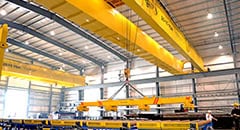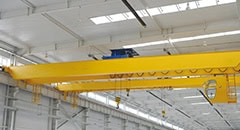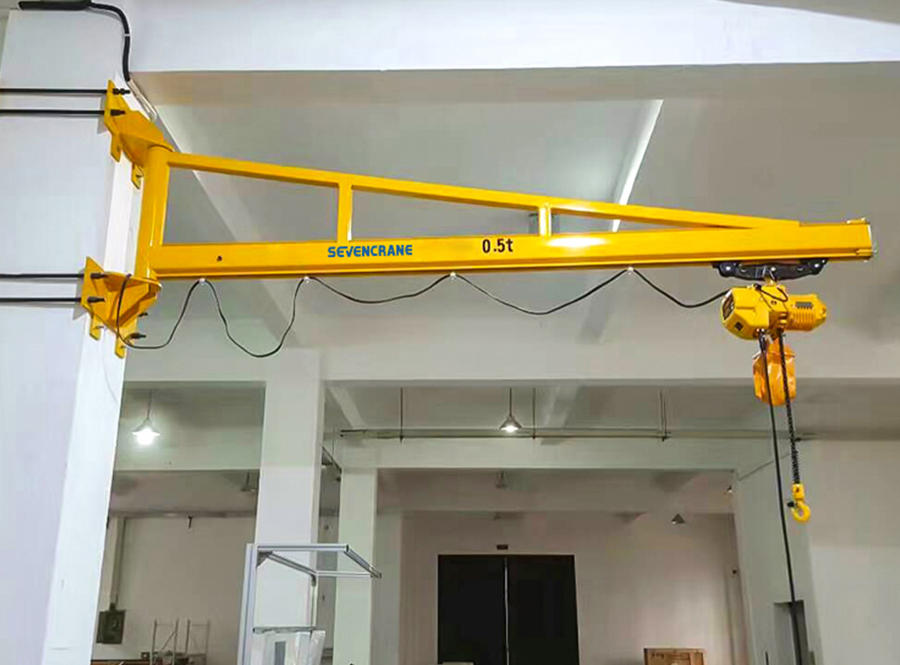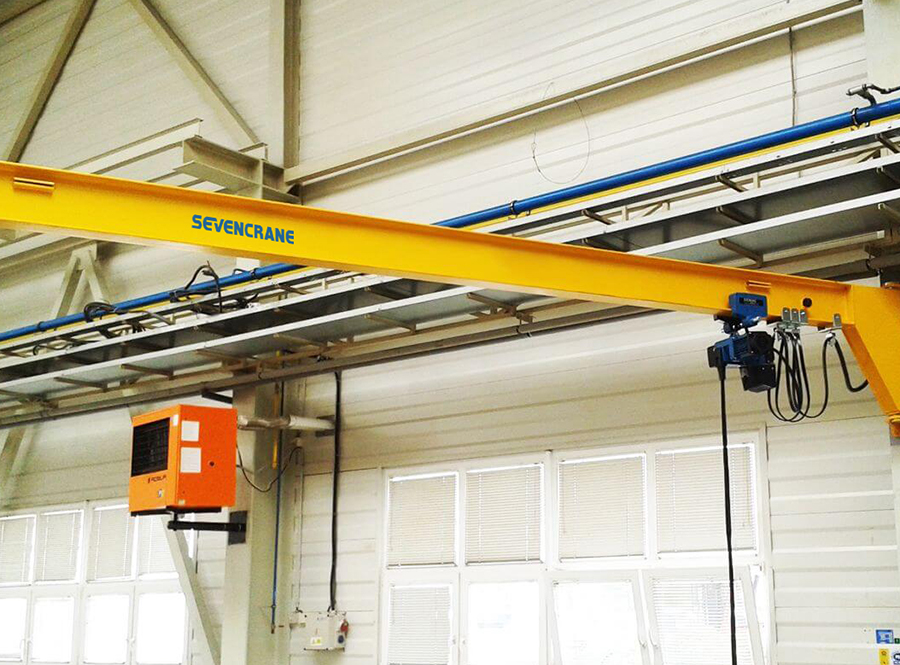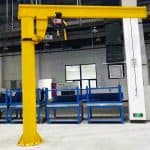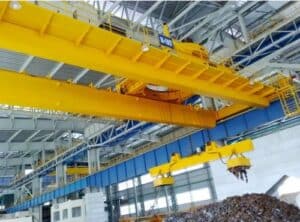5. Make the combination between safety device and wall mounted cantilever crane more perfect
In order to avoid dangerous accidents during production operations and ensure the safety and reliability of jib crane lifting operations, jib cranes are usually equipped with corresponding safety devices. With the continuous advancement of industry technology, jib cranes now have complete safety devices.
The complete safety device of the sevencrane wall mounted cantilever crane mainly consists of three major safety devices: jib luffing safety device, height limit device and outrigger locking device. The perfect cooperation of these three safety devices provides the greatest protection for the safe operation of the jib crane.
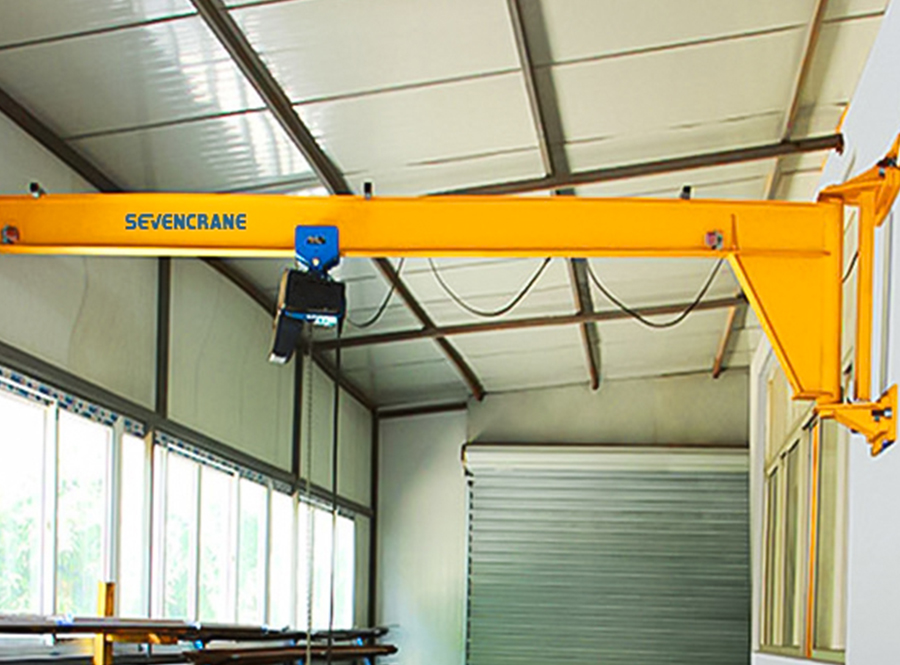
Among them, the boom luffing safety device can make the boom retract on its own when the high-pressure hose or oil pipe bursts or is cut off to achieve a protective effect; the height limit device can make the limit limit after the hook is raised to the specified height. The position weight releases the restraint and returns the operation to normal; and the outrigger locking device can block the pressure oil in the two chambers of the cylinder in an emergency so that the outriggers do not shrink or throw out.
In addition to the above three major safety devices, the jib crane also has other safety devices, which work closely together to provide a safe and reliable operating environment for the jib crane.
6. How to check whether the overload protection device of the industrial wall mounted cantilever crane meets the requirements?
Inspection of the safety protection device of the cantilever crane. Whether the overload protection device is sensitive and reliable and meets the design requirements. The opening pressure of the hydraulic overload protection device; whether the comprehensive error of the mechanical, electronic and comprehensive overload protector alarm and power source cut-off set points meets the requirements. Require. Moment limiter The torque limiter is a safety device for jib type cranes to prevent overloading and overturning.
Check the sensitivity and reliability of the torque limiter through the amplitude increase method or the weight increase method, and check whether the comprehensive error of the torque limiter alarm and power source cut-off set points is within the specified range. The limit position limiter checks whether an alarm signal can be generated when the luffing mechanism, lifting mechanism, and operating mechanism of the jib crane lifting equipment reach the set position distance, and the power source running in the dangerous direction is automatically cut off.
Wind protection device For wall mounted cantilever crane for sale with a height of the hinge point at the root of the boom greater than 50 meters, the anemometer should be checked to see if it can accurately alarm when the wind speed set point is reached or the working limit wind speed is reached. Cranes operating on the track in the open air should check whether the rail clamps, iron shoes, and anchoring devices are deformed or damaged and whether they work independently. The transmission shaft of the automatic rail clamp should be checked for sudden wind gusts. The windproof device cooperates with the trolley operating brake to achieve the windproof function and the reliability of the electrical interlock switch function in the non-anchored state.
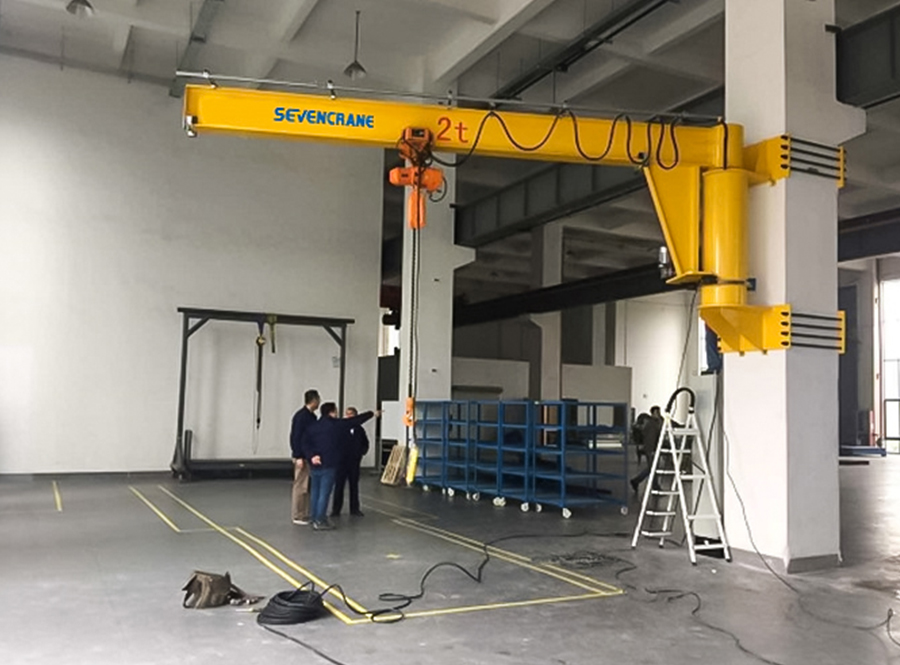
Protective devices: Check whether the various protective covers, guardrails, guard plates, ladders, etc. on the crane are complete and reliable. The exposed open transmission on the cantilever crane may cause winding and injury; couplings, sprockets, chains, and transmission belts. Whether there are protective covers for rotating parts, whether there are protective fences on pedestrian passages on cranes, ladders and parts that may expose people, and whether the treatment methods for how to remove flat warts meet the requirements. The electrical equipment of the cantilever crane used in the open air should be equipped with a rain cover. The control device should check whether the electrical accessories are complete and whether the mechanical fixing is firm and free of looseness and jamming; whether the power supply cable is aged or exposed; the insulation material should be good and not damaged or deteriorated; the bolt contacts, brushes and other connection parts should be reliable; The electrical equipment and components selected on the crane should be compatible with the power supply, working environment and working conditions.
7. Technical requirements before installation of cantilever crane track beams
1. The strength grade of the concrete leveling layer of the cantilever crane is C30, and the thickness is 30~50mm.
2. Before construction of the concrete leveling layer, the installation deviation of the track beam should be checked as required. If it does not meet the requirements, the track beam should be adjusted.
3. According to the measured elevation of the track beam surface, determine a suitable control elevation of the top surface of the concrete leveling layer, and set a reference point for control elevation every 214 to 310m on the track beam.
4. Use instruments to measure and adjust the elevation of the datum point with the cantilever crane, determine the datum line for the top elevation of the leveling layer, then install the formwork, remove debris from the top surface of the track beam and the bolt holes, and plug the bolt holes. After it is wet with water, concrete can be poured.
5. The top surface of the leveling layer must be leveled and calendered. There must be no exposed stones or unevenness. Leveling by laying additional cement mortar on the surface is not allowed.
6. During the construction of the cantilever crane, instruments must be used for measurement and inspection at any time. The top surface of the leveling layer must meet the following requirements: the unevenness of the top surface within the 400mm width range of the bolts is ≤5mm; the elevation difference of the top surface of any 610m length interior bolts is ±3mm; The top elevation difference of each bolt along the entire length is ±5m.
7. The concrete for the cantilever crane is mixed mechanically, and maintenance should be strengthened during construction. Only when the concrete test block reaches 75% of the designed strength value can the track installation work be carried out.

